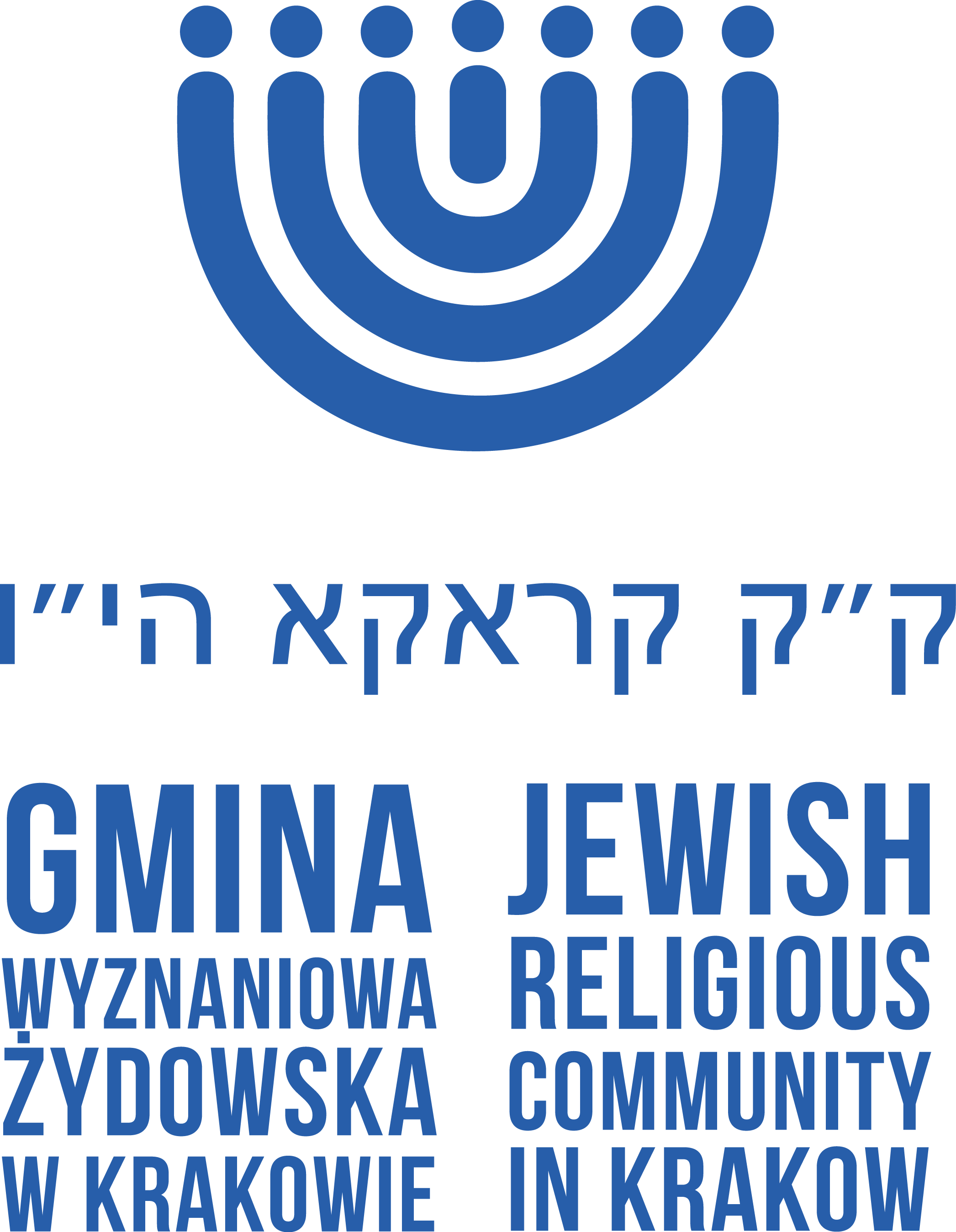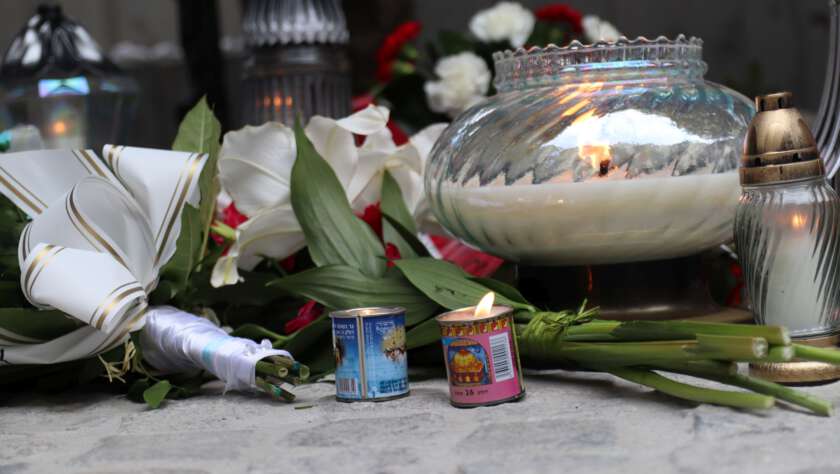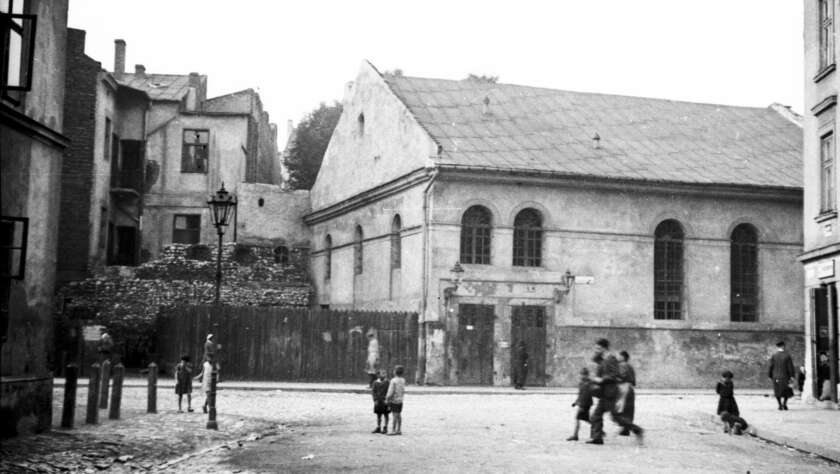The Holocaust Victims Memorial Square located at the corner of Tymowskiego, Kazimierza Wielkiego and Berka Joselwicza streets, was opened on 28th August 2022 in Nowy Sącz. It commemorates approximately 12,000 Jews from Nowy Sącz who were murdered by the Germans. The victims’ names have been engraved on the walls of the monumental building which resembles the museum in Bełżec. Sara Weinfeld Melzer, one of very few people who managed to survive the ghetto liquidation, as well as numerous descendants of the Nowy Sącz Jews, were present at the ceremony. Also in attendance were the Mayor of Nowy Sącz, Ludomir Handzel, the United States Consul General in Krakow, Erin Nickerson, Ursula Maier who represented the Federal Republic of Germany, Elena Lagutin, representing the Ambassador of Israel to Poland as…
An orphanage for Jewish children in Rabka was closed down on 28th August 1945. In February, soon after the German occupation ended, a plan came up to open a care-therapeutic facility for Jewish children in Rabka. The facility was supposed to help to heal the difficult situation of the Temporary Assistance Commitee for the Jewish People at Długa 38 in Krakow. An orphanage for children returning from camps was also set up there. Finally, the facility in Rabka was opened at the break of June and July 1945 and was dedicated to the most sick children. It included three buildings: the Stasin, Juras and Niemen mansion. The facility offered shelter to approximately 100 children from Krakow, Warsaw, Łodz and other cities. The list of the young people…
Born on 20th August 1908 in Krakow, Julian Aleksandrowicz was a GP, professor of medicine, philosopher of medicine and haematologist. After graduating from the Kościuszko Gymnasium in 1926, he started studying at the Faculty of Medicine at the Jagiellonian University. He finished the university and became a doctor in 1933. One year later, Aleksandrowicz graduated frm the Department of Physical Education at the Jagiellonian University. In1934, he defended his doctorial thesis about bone marrow tests which he had started back in the times when he was still a Medicine student. Aleksandrowicz joined the army’s 72 Infantry Regiment in August 1939 as a second lieutenant doctor. He took active part in military operations. After escaping the prisoner-of-war camp, he returned to Krakow in January 1940. Not long after…
On 11th August 1945, during a morning prayer (Shacharit) held in the Kazimierz district, an aggresive crowd forced their way into the Kupa Synagogue. Several Jews were beaten up while the Synagogue was ransacked. What is more, that day witnessed further assaults and robberies of the Jews. The reason behind these events was a rumour about an apparent ritual murder of a Polish child commited by the Jews. As a result of these incidents one person died. The random victim was 56-year old Róża Berger who had just come back from KL Auschwitz-Birkenau. The Internal Security Corps Batallion managed to control he turmoil late evening yet the civilians did not stop their acts of violence and robberies. The authorities arrested dozens of rioters, 14 of whom were later…
Born on 7th August 1900 in Krakow, Leon Sperling, son of Salomon, was a member of the Polish national football team where he played 21 matches, an Olympic athlete, a three-time Polish football champion with Cracovia (1921, 1930, 1932), a bank clerk. Sperling was a trade school graduate. Due to his impressive talent as a striker, he got a nickname – ”a football magician”. In fact, Sperling was one of the best strikers of the interwar period. Throughout almost all of his career he was linked with Cracovia where he played 381 matches. However, Sperling took his first football steps in Jutrzenka Kraków. He made his debut with the Polish football team in a Poland-Hungary match on 18th December 1921 in Budapest. In 1924, he took part…
Born on 4th August 1906 in Vienna, Juliusz Madritsch was an entrepreneur who continued to do business in Krakow during WWII. He was recognised as Righteous Among the Nations by the Jad Waszem Institute in 1964. In spring 1940, Madritsch decided to move to Krakow as a way of avoiding joining the German army. There, he opened a sewing factory which employed 800 people. He stood out thanks to his ”human approach to the Jews” which was uncommon among other businessmen of those times. Instead, their goal was to take advantage of their employees and make as much profit as possible. Madritsch however, provided his employees with proper catering as well as good working conditions. In March 1943, right before the liquidation of the Krakow ghetto, together…
Born on 1st August 1889 in Tarnopol, Aleksander Bieberstein was a doctor, chronicler of the Krakow ghetto and a social activist. After Poland regained its independence, he started working as a doctor in the Polish Army, followed by a position in the Social Insurance Institution. In 1942, Biberstein organised and managed a hospital for infectious diseases in the Krakow ghetto. He was also a Chairman of the Board of a Facility for the Jewish Orphans. Aleksander Bieberstein was a prisoner of the Plaszow and Gross-Rosen camps as well. After WWII, he managed the Health Department of the Provincial Council until 1958. One year later Biberstein emigrated to Israel. Aleksander Biberstein is the author of one of the most significant pieces of work entitled ”Zagłada Żydów w Krakowie”…








